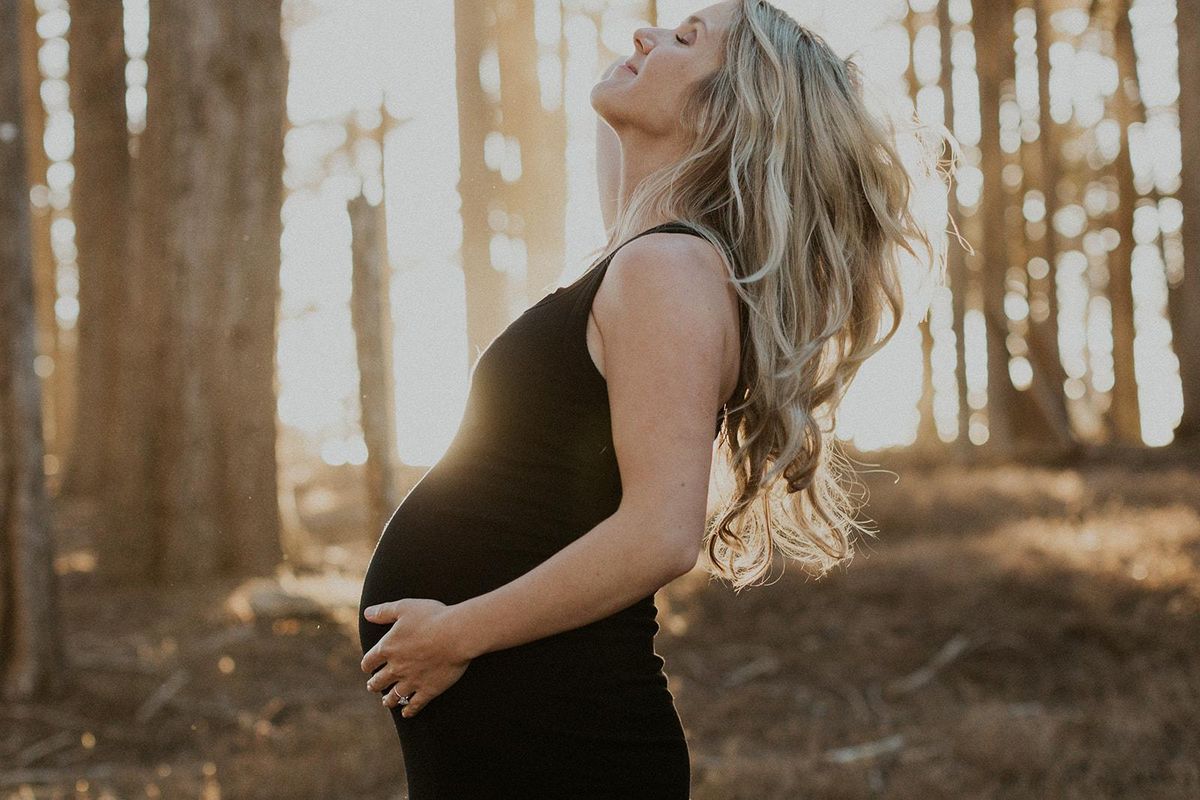As told to Shannon Shelton Miller
Every time I visited the doctor during my pregnancy, I'd take a test or undergo a screening to make sure my baby was all right. My healthcare providers (HCPs) checked my vitals too, giving me a clean bill of physical health each time.
But no one asked how I was feeling. While protecting my baby's health was a top priority, my own mental health was neglected.
Like many women, I was worried at first about how my husband and I would fit a pregnancy into our busy lives, but we were thrilled to be expecting. Being excited about the new baby didn't prevent me from feeling overwhelmed by the physical and mental changes I experienced as my pregnancy progressed.
Feeling nauseated forced me to slow down, and I was exhausted for much of my first trimester. Researching information about pregnancy created anxiety about what could go wrong during pregnancy and birth for mom and baby, and I began growing fearful of any and every symptom that felt off.
Internet searches made me think every unusual symptom I was experiencing was a sign of miscarriage, and I had a constant fear of losing my baby after I learned that spotting and cramping were the biggest red flags. I'm a fitness instructor and because I was still teaching classes, I cramped and experienced a small amount of spotting a few times. I had to keep telling myself that I was OK, that my baby was OK, and that I wasn't miscarrying.
At doctor's appointments, pregnant women are told they need multiple screenings to make sure their children are healthy. HCPs check the mom for gestational diabetes and other conditions that could affect a pregnancy. They're doing the right thing, of course, but I was constantly worried there was a chance something was wrong, and it made me feel stressed, and then I worried that the stress could lead to other complications.
Going through this during a pandemic, I was cut off from people who could have been my support system. I was trying to hold everything in and deal with my feelings alone, figuring that I should just be able to handle it all by myself.
After waking up yet another morning to a bizarre dream, feeling off and just kind of grumpy with my husband, I realized I needed to get everything off my chest. Anxiety wasn't healthy for the baby or for me. I hit a breaking point where I admitted that everything wasn't all right, that I was feeling vulnerable and needed help.
I leaned on my mama, my friends and my sister, who has two young children and works as a doula. My sister helped me understand everything I was going through was to be expected. That's the message I needed to hear — everything I was feeling was normal, even if it didn't feel that way in the moment. It was important to give myself permission to express all of my feelings about pregnancy and impending motherhood, even if they weren't always positive in the moment.
I was also really honest with my partner about everything I was feeling. Just opening that dialogue with him — even if he couldn't totally understand what was going on — did help. It was freeing when I could tell my husband how I was feeling.
I also decided to go against one of the biggest societal expectations about pregnancy — that you don't announce your pregnancy until you're past your first trimester. It's incredibly difficult when you're struggling with your pregnancy but feel you can't tell anyone you're pregnant because you might miscarry. I decided I wanted the people close to me to know that I was pregnant. That way, if I did end up miscarrying, I'd be able to turn to them for support.
I started prenatal yoga, which taught me to tune into my body and helped me feel more connected to the baby. I scheduled sessions with holistic healers who gave me a safe forum where I felt free to speak what was on my mind.
Even little things at home helped lift my mood, like watching Netflix shows and listening to audiobooks about new moms experiencing motherhood. When I was just sitting on the couch, I'd light a candle nearby. Anything that can make a difference when you're stressed can be part of self-care. I realized I didn't need to push myself to be perfect — pregnancy is a time to rest, honor yourself and your baby.
I turned a corner once I got things off my chest and opened up to my close friends and family. I was able to get through the rest of my pregnancy, labor and delivery and the postpartum period with better mental health because I leaned on people around me. I felt less resistant to stepping into motherhood.
I remember telling one of my mama friends I was crying every single day after giving birth. She told me she went through it too, and that it's normal because of that mix of hormonal changes, the identity shifts you're experiencing and the love you feel for your new baby. You're allowed to feel it's all really hard and still be an amazing mom and partner. Once, I finally opened up, having friends and family to check on me during my pregnancy and postpartum period made such a difference.
My daughter, Mylo, is now 6 months old, and my experience led me to a second career coaching women about reducing stress around conception, pregnancy and the postpartum period. I'm passionate about reminding pregnant women that they're going into a courageous and beautiful chapter of their lives, but it can still be scary — and they're not alone if they need support.
- Drowning in New Motherhood: My Journey Through Postpartum ... ›
- Feeling Blue? Learn the Difference Between Perinatal Depression ... ›
- 6 Weeks Pregnant: Emotional Ups and Downs - HealthyWomen ›







